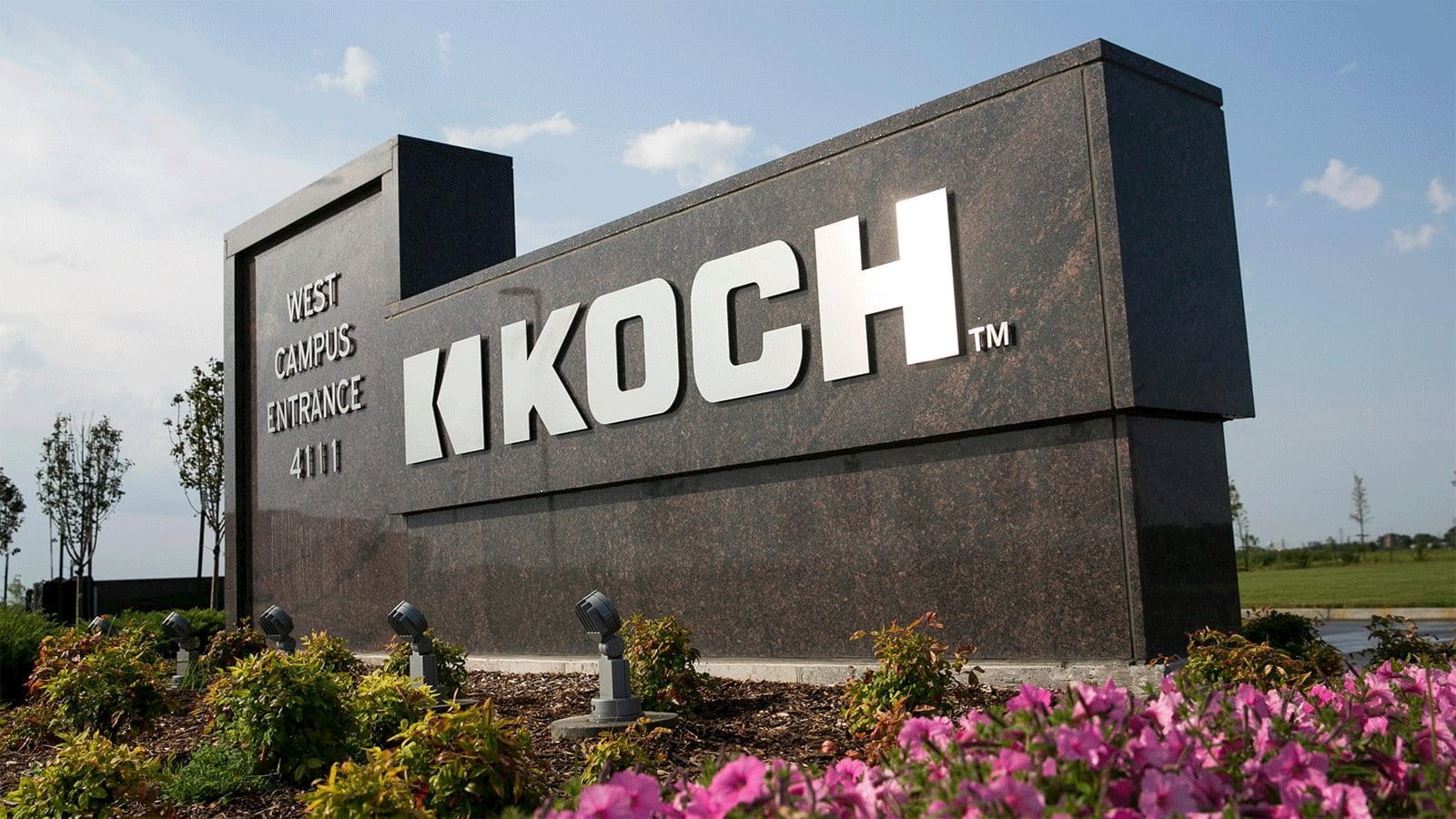
High stakes soap opera
Koch Industries was founded in Kansas in 1940 by Fred Koch, as Wood River Oil and Refining Company. Primarily an engineering firm, it also had oil and cattle ranching businesses. Following Fred Koch’s death in 1967, it was renamed Koch Industries and Fred’s second son, Charles Koch, became chairman.
The first 20 years of his chairmanship were marked by inter-family legal disputes – but the business grew dramatically despite a behind-the-scenes battle that pitched Charles and younger brother David against eldest brother Fred Junior and David’s twin, Bill. Charles and David won in that they retained control of the company, with Charles as the boss and David (who died in 2019) his lieutenant. Fred and Bill ‘lost’, but were paid $1.1bn for their shares in 1983.
At the age of 86, Charles Koch is still chairman and CEO today, presiding over the second largest private company in the US, with 122,000 employees and, at last count (2019), annual revenues of $115bn. As of January 2022, the Bloomberg Billionaires Index ranked Charles as the 21st richest person in the world, with an estimated net worth of $60.9bn. The family has also been a big financial contributor to Republican politics, think tanks, lobbyists and some very controversial campaigns. A Financial Times interview with Charles Koch in 2016 discussed his “evil guy” image and “absolutist free-market ideology”.
Seizing moments
Koch Industries has certainly been bold in embracing new technologies and green investment deals, and has been swift to seize opportunities arising from the pandemic through its autonomous divisions.
At the end of November 2021, it acquired DEPCOM, a US engineering firm that builds and operates utility-scale solar power plants (for an undisclosed sum). Stinson advised Koch, while Greenberg Traurig advised DEPCOM.
Earlier that month, Koch Disruptive Technologies (KDT) led a $15m increase to the Series B funding round for Sense Biodetection to support the launch of its Veros instrument-free, single-use, rapid diagnostic testing kit for COVID-19. A total of $65m has been invested in the business. And in October, KDT led a $215m Series B investment in biotech start-up Immunai, which is developing tech to map the human immune system and improve health outcomes.
Also in October, Infor – Koch Industries’ cloud company – acquired Crawley-based Lighthouse Systems, a provider of software for smart manufacturing, for an undisclosed sum. UK acquisitions are certainly proving attractive to a group with deep pockets.
Roll out the red carpet
In October 2020, Koch invested £175m in UK firm Victoria plc to fund an acquisition spree. The Kidderminster-based flooring designer and manufacturer – which provided the red carpet for Prince William and Kate Middleton’s wedding (below) – said: “The events of the past few months have revealed some potentially exceptional acquisition possibilities in Europe and the UK to grow Victoria substantially.”
BDO advised Victoria on the deal, with Koch using its own in-house team. Since the investment, Victoria’s shares have more than trebled and last year it made acquisitions in the US, Turkey and Belgium.
Victoria is well versed in the art of growing through M&A and picked up ICAEW’s corporate development award in 2015.
Keep it private
“Literally over my dead body” is Charles Koch’s (below) response to the question of Koch Industries going public. Being privately owned allows the business to think long term, but act quickly.
Acquisitions have played a key part in the group’s growth under his stewardship, repositioning it from the oil and engineering company blighted with health and safety lawsuits it was in the 90s.
Charles’s management thinking holds sway, with employees expected to read The Science of Success, his 2007 manifesto.
For its size, Koch has a flat structure. Business units are encouraged to innovate, dispose of unsuccessful ventures and replace them with acquisitions.
